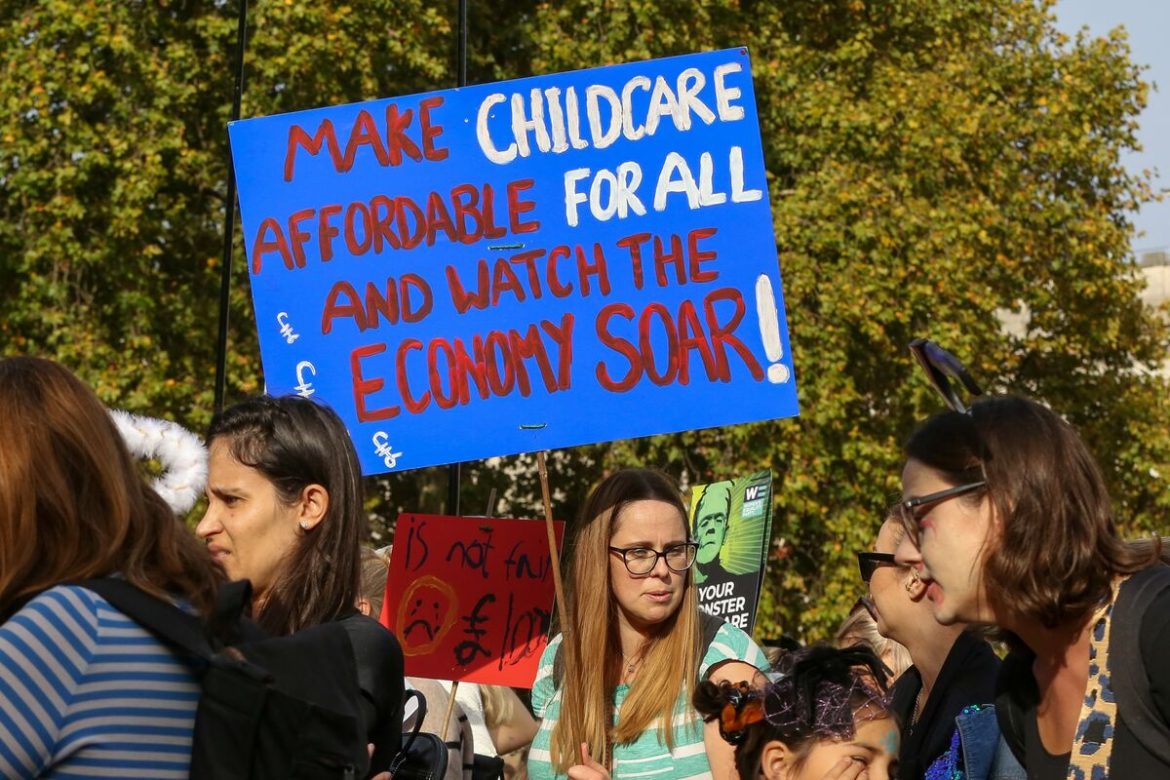BRITAIN/ Two-thirds of women with childcare responsibilities believe they have missed out on career progression; as a direct result business leaders have warned amid growing pressure on the government to boost support for parents.
Ahead of next week’s budget, the British Chambers of Commerce (BCC) said tackling barriers to work posed by soaring childcare costs and a lack of support for elderly or disabled relatives was vital for equality and the economy.
A landmark survey of more than 4,000 women; found as many as 67% felt childcare duties in the past decade; had cost them progress at work; including pay rises, promotions or career development.
Barriers
“Tackling these issues is integral not only to the well-being of our women; but it is also crucial to the functioning of any strong economy;” Shevaun Haviland the BCC’s said.
The intervention adds to pressure on the chancellor, Jeremy Hunt, to use his upcoming budget to provide more support for parents to work, amid warnings from economists that sky-high childcare costs are among the reasons why thousands of people have quit the jobs market.
Hunt is widely expected to place growing workforce participation at the heart of his statement but is thought to be unlikely to announce major new funding for childcare amid government concerns over the public finances.
However, charities, trade unions, and business groups argue that supporting more people to work; could benefit the economy in the longer term.
Local Economic Strategies Centre & Women’s Budget Group
A new analysis by the Centre for Local Economic Strategies and the Women’s Budget Group, published last week, finds the barriers to paid work faced by women mean almost £90bn of gross value added is lost to the economy in England, Scotland and Wales each year – equivalent to the entire contribution of the financial services industry.

Trades Union Congress
Meanwhile, the Trades Union Congress has calculated that almost 1.5 million women; are kept out of the labor market because of their caring responsibilities; compared with 230,000 men; making them seven times as likely to stand outside the workforce.
In an analysis published at the annual TUC women’s conference; the unions’ umbrella group said this showed ministers had to act now to keep women in work; make sure they are paid fairly; and properly address the gender pay gap.
Paul Nowak, the TUC general secretary, said: “We desperately need funded high-quality childcare for all families; free at the point of use, so women can stay in work once they have kids.
Jobs Website “Adzuna” & Institute For Fiscal Studies
A separate analysis by the jobs website Adzuna; shows that less than 3% of job adverts online mention support for women. It called on employers to rethink the benefits they offer to help women stay in work; and thrive while highlighting that more job adverts mention free gym membership or unlimited holidays than menopause support.
Highlighting gender gaps despite progress made in recent years, the Institute for Fiscal Studies; warned in its report that inequalities between men and women; for income from private pensions were set to persist for decades.
It said the difference between men’s and women’s average state pension incomes; for those born in the 1950s, had closed to essentially zero over the past decade. However, women still had private pension incomes about 45% lower than men.
The IFS said this was almost entirely driven by differences in labour market patterns – employment rates; hours worked and hourly wages – which particularly open up after the birth of children.
Laurence O’Brien, the research economist at IFS; said the divisions persisted even for younger age groups: “As these generations will not retire for many decades; we can expect a gender gap in pension incomes to remain for a long time yet.”
Source: Guardian


